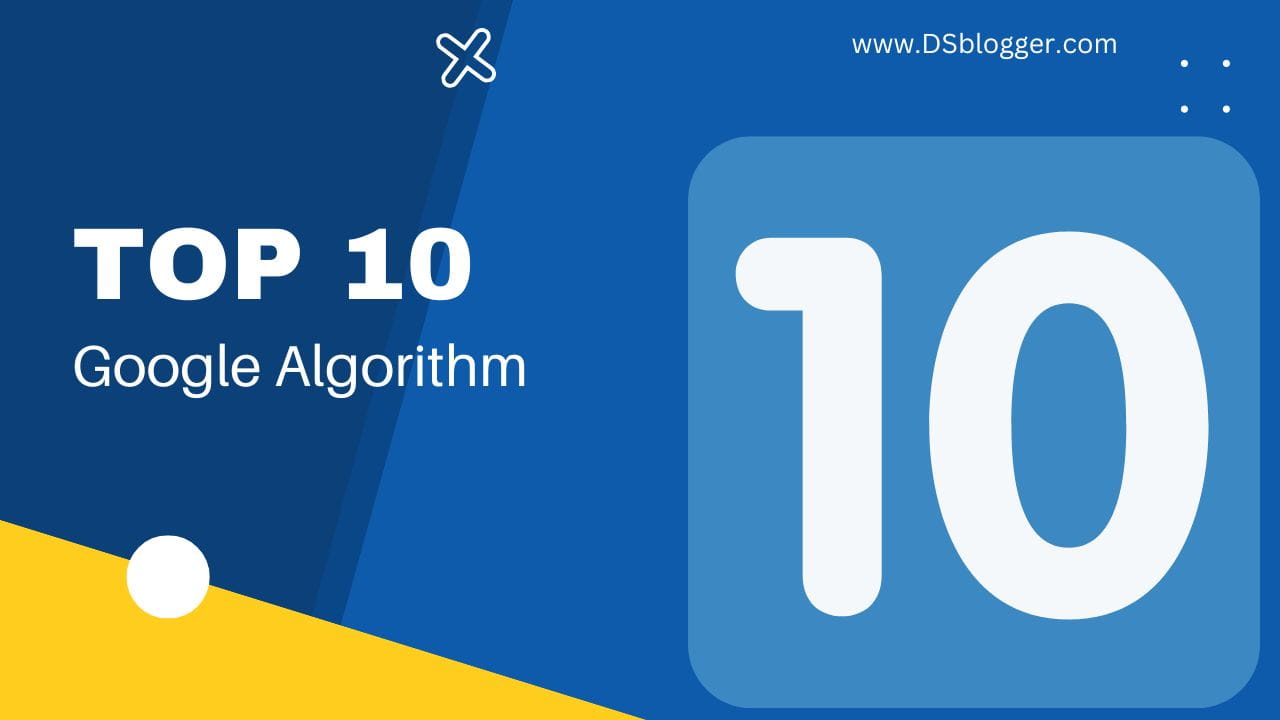What is an algorithm?
A method that must be followed when performing some task or problem-solving operation as a result algorithm is a collection of rules or instructions to do that work step by step to follow and achieve the desired result.
That is a fundamental definition of an algorithm now let’s talk about Google’s algorithms
What Are Google Algorithms?

Google algorithms are a complex system that is used by Google to deliver webpages ranked by relevance on its search engine result page (SERP)
In early launches, Google made a handful of updates to its algorithms but now, Google makes so many changes every year
How Did Google Algorithms Work?
Crawling
Google uses automated software known as “Googlebot” or “spiders” to crawl and discover web pages across the internet. These bots follow links from one page to another, collecting information about each page they encounter.
Indexing
Once a web page is crawled, its content is stored in Google’s index, which is a massive database of web pages. This allows Google to retrieve and analyze the information when processing search queries.
Query Processing
When a user enters a search query, Google’s algorithm goes into action. It analyzes the query to understand the user’s intent and context.
Ranking Factors
Google’s algorithm considers numerous ranking factors to determine the relevance and quality of web pages. These factors may include keyword relevance, content quality, backlinks, user engagement signals, website performance, mobile-friendliness, and many others. The algorithm assigns weights to these factors and calculates a score for each web page.
Algorithmic Updates
Google periodically updates its algorithm to improve search results. These updates can introduce new ranking factors, refine existing ones, or address specific issues like spam, low-quality content, or manipulative practices. Major algorithm updates, such as Panda, Penguin, and BERT, can have a significant impact on search rankings.
Search Results
Based on the ranking scores calculated by the algorithm, Google generates a list of search results. Pages with higher relevance and quality are typically ranked higher in the results. The algorithm aims to present the most relevant and useful web pages to the user based on their search query.
Some Google algorithms
Caffeine
Big daddy
Florida
Panda
Vince
Jagger
Penguin
Hummingbird
Rankbrain
Payday
Pigeon
Fred
Medic
Bert
Top 10 Google Algorithm
1)Panda
Launch February 2011
These algorithms change aimed to lower the rank of low-quality websites or thin sites like copy content, keyword stuffing in particular content farms.
And return higher-quality sites and content near the top of the search results
2)Penguin
Launch in April 2012
The penguin algorithms largely focused on identifying poor quality websites based upon backlinks and links spamming and downgrading that website.
3)Hummingbird
Launch in August 2013
To Deal with keyword stuffing Hummingbird algorithms focus on understanding the actual meaning behind a search query. Rather than a separate term within it.
4)Rankbrain
Launch in October 2015
Rankbrain algorithms actually is a machine learning AI. Google uses the Rankbrain algorithm to sort the search results
5)Page experience update
Launch in 2021
Page experience update is a change made to Google’s search engine in order to improve quality, sort load time of pages, stable pages, relevance, and overall user experience of its search results.
6)Google BERT
BERT (Bidirectional Encoder Representations from Transformers) helps Google better understand the context and meaning of words in search queries to provide more accurate search results.
7)Google Fred
Launch March 2017
Fred is not an official name, but rather a term given by the SEO community to a series of unconfirmed algorithm updates that target websites with low-quality content and heavy ad presence.
These updates aim to deliver better user-focused search results. Fred targeted websites with low-quality content and aggressive monetization tactics.
8)Medic Update
Launch August 2018
This algorithm update significantly affected health and medical websites.
It focused on the expertise, authoritativeness, and trustworthiness (E-A-T) of such sites, aiming to ensure accurate and reliable information for health-related queries.
9)Mobile-Friendly Update
Launch April 2015
This Google algorithm update prioritized mobile-friendly websites in mobile search results.
Websites optimized for mobile devices received a boost in rankings, enhancing the mobile user experience.
10)PageRank
PageRank was one of Google’s earliest and most influential Google algorithms.
It ranked web pages based on the number and quality of links pointing to them.
Read more about Google algorithms in official Google website.
FAQ
What exactly is an algorithm?
Think of an algorithm as your trusty recipe for solving a problem step by step.
It’s like instructions that guide you to the desired outcome.
How do Google’s algorithms work in 2023?
Google’s algorithms are like the wizards behind the curtain, sorting and ranking webpages based on relevance.
They crawl the web, index content, analyze search queries, and use ranking factors to dish out search results.
What are some famous Google algorithms in 2023?
Google has a lineup of star algorithms: Panda, Penguin, Hummingbird, Rankbrain, BERT, and more!
What’s the deal with Panda and Penguin algorithms?
Panda is the guardian of content quality, reducing the rank of thin and low-quality websites.
Penguin, on the other hand, fights spammy backlinks and gives them a one-way ticket down the rankings.
What’s the big takeaway about Google Algorithm?
Google’s algorithms are your search buddies, ensuring you get the best results.
They’ve evolved to improve quality, relevance, and user experience.










